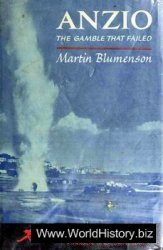For published sources, in addition to the variety of documents in the Foreign Relations ofthe United States series, see the transcripts of telephone conversations in Michael R. Beschloss (ed.), Taking Charge: The Johnson White House Tapes, 1963-1964 (New York: Simon & Schuster, 1997), and Michael R. Beschloss (ed.), Reaching for Glory: Lyndon Johnson's Secret White House Tapes, 1964-1967 (New York: Simon & Schuster, 2001). For the mood in the Kennedy White House, see Andrew Schlesinger and Stephen Schlesinger (eds.), Journals, 1952-2000: Arthur M. Schlesinger, Jr. (New York: Penguin, 2007). See also the online recordings available at the sites for the Miller Center Presidential Recordings Project, the John F. Kennedy Presidential Library, and the Lyndon B. Johnson Presidential Library. For transcripts of JFK's Excomm meetings, see Ernest R. May and Philip D. Zelikow (eds.), The Kennedy Tapes: Inside the White House during the Cuban Missile Crisis (Cambridge, MA: Harvard University Press, 1997). Be aware, however, that the editors have deleted many of the "umms," "uhhs," and sentence fragments, making the conversations and particularly the president's contributions seem more focused. For less edited transcripts, see "Documentation: White House Tapes and Minutes of the Cuban Missile Crisis," International Security, 10 (1985), 164-203.
Biographies that utilize newly available archival materials include Robert Dallek, An Unfinished Life: John F. Kennedy, 1917-1961 (Boston, MA: Little, Brown, 2003), and Robert Dallek, Flawed Giant: Lyndon Johnson and His Times, 1961-1973 (New York: Oxford University Press, 1998). More concise is James N. Giglio, The Presidency of John F. Kennedy (Lawrence, KS: University Press of Kansas, 2006). Deeply researched and empathetic is Randall B. Woods, LBJ: Architect ofAmerican Ambition (New York: Free Press, 2006). For an essential perspective, see William Taubman, Khrushchev: The Man and His Era (New York: Norton, 2003). Valuable are parts of Melvyn P. Leffler, For the Soul of Mankind: The United States, the Soviet Union, and the Cold War (New York: Hill and Wang, 2007), Walter LaFeber, America, Russia, and the Cold War, 1945-2006 (Boston, MA: McGraw-Hill, 2008), and Thomas J. McCormick, America's Half-Century (Baltimore, MD: Johns Hopkins University Press, 1995). Other studies remain pertinent. More critical are Thomas G. Paterson (ed.), Kennedy's Quest for Victory: American Foreign Policy, 1961-1963 (New York: Oxford University Press, 1989), and Warren I. Cohen and Nancy Bernkopf Tucker (eds.), Lyndon Johnson Confronts the World (New York: Cambridge University Press, 1994). More sympathetic is Diane B. Kunz, The Diplomacy of the Crucial Decade: American Foreign Relations during the 1960s (New York: Columbia University Press, 1994). Though hagiographic, early biographies by Kennedy's aides offer rich detail. Arthur M. Schlesinger, Jr., A Thousand Days: John F. Kennedy in the White House (Boston: Houghton Mifflin, 1965), and Theodore C. Sorensen, Kennedy (New York: Harper & Row, 1965).
For Kennedy, Johnson, and Vietnam, start with George C. Herring, America's Longest War: The United States and Vietnam, 1950-1975 (Boston, MA: McGraw-Hill, 2002), Marilyn
B. Young, The Vietnam Wars: 1945-1990 (New York: HarperCoUins, 1991), Lloyd C. Gardner, Pay Any Price: Lyndon Johnson and the Wars for Vietnam (Chicago: Ivan R. Dee, 1995), David Kaiser, American Tragedy: Kennedy, Johnson, and the Origins of the Vietnam War (Cambridge, MA: Harvard University Press, 2000), Robert J. McMahon, The Limits of Empire: The United States and Southeast Asia since World War II (New York: Columbia University Press, 1999), and Walter LaFeber, The Deadly Bet: LBJ, Vietnam, and the 1968 Election (Lanham, MD: Rowman and Littlefield, 2005). On the politics of escalation, see Robert Buzzanco, Masters of War (New York: Cambridge University Press, 1996), and Fredrik Logevall, Choosing War (Berkeley, CA: University of California Press, 1999). For the Vietnamese perspective, see Robert K. Brigham, Guerrilla Diplomacy: The NLF’s Foreign Relations and the Vietnam War (Ithaca, NY: Cornell University Press, 1998). On the Soviet connection, see Ilya V. Gaiduk, Confronting Vietnam (Stanford, CA: Stanford University Press, 2003).
For the Cuban missile crisis, see entries under section 4 of this bibliography.
Two key books are Stephen G. Rabe, The Most Dangerous Area in the World: John F. Kennedy Confronts Communist Revolution in Latin America (Chapel Hill, NC: University of North Carolina Press, 1999), and Stephen G. Rabe, U. S. Intervention in British Guiana (Chapel Hill, NC: University of North Carolina Press, 2005). See also Walter LaFeber, Inevitable Revolutions: The United States in Central America (New York: W. W. Norton & Co, 1993).
For other Third World areas, Odd Arne Westad, The Global Cold War (New York: Cambridge University Press, 2005), offers the best overview. Also pertinent are portions of Peter L. Hahn and Mary A. Heiss (eds.), Empire and Revolution: The United States and the Third World since 1945 (Columbus, OH: Ohio State University Press, 2001), Andrew J. Rotter, Comrades at Odds: The United States and India, 1947-1964 (Ithaca, NY: Cornell University Press, 2000), and Douglas Little, American Orientalism: The United States and the Middle East since 1945 (Chapel Hill, NC: University of North Carolina Press, 2002).
On relations with France and Germany, see Erin Mahan, Kennedy, de Gaulle and Western Europe (New York: Palgrave, 2002), Charles G. Cogan, Oldest Allies, Guarded Friends (Westport, CT: Praeger, 1994), Ronald J. Granieri, The Ambivalent Alliance (New York: Berghahn Books, 2003), Andreas Daum, Kennedy in Berlin (New York: Cambridge University Press, 2007), and Frank Costigliola, The United States and France: The Cold Alliance since World War II (New York: Macmillan, 1992). For a sympathetic treatment of LBJ, see Thomas Alan Schwartz, Lyndon Johnson and Europe (Cambridge, MA: Harvard University Press, 2003). For key monetary issues, see Francis J. Gavin, Gold, Dollars, and Power (Chapel Hill, NC: University of North Carolina Press, 2004). Still insightful is David P. Calleo, The Imperious Economy (Cambridge, MA: Harvard University Press, 1982).
For the impact of masculine identity, see Robert G. Dean, Imperial Brotherhood: Gender and the Making of Cold War Foreign Policy (Amherst, MA: University of Massachusetts Press, 2001). On the consequences of youthful rebellion, see Jeremi Suri, Power and Protest: Global Revolution and the Rise of Detente (Cambridge, MA: Harvard University Press, 2003).




 World History
World History









